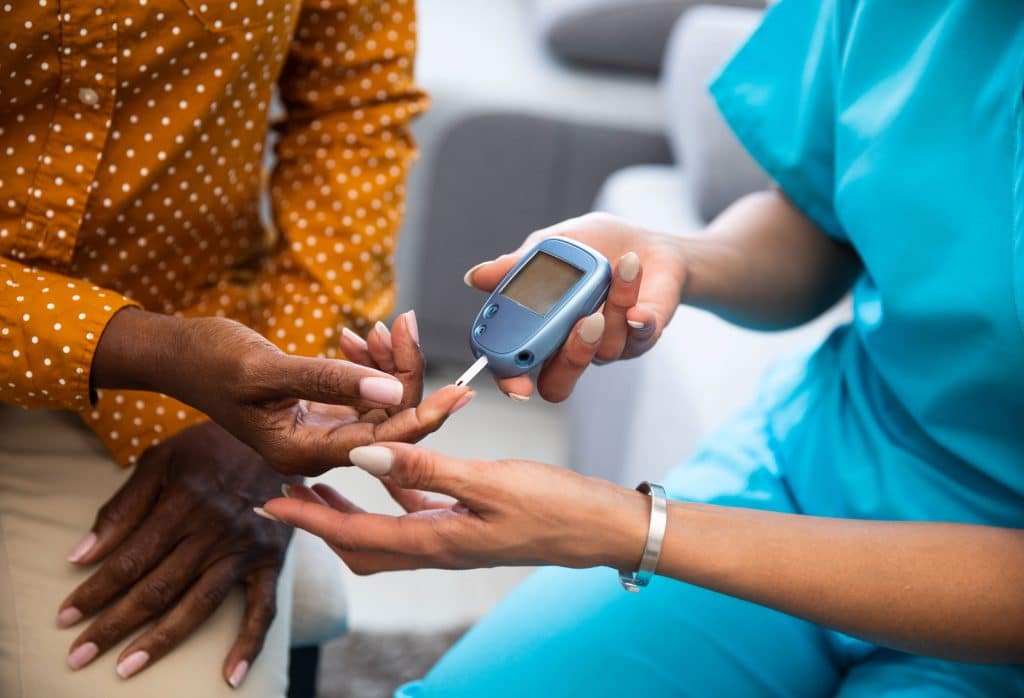It was during a conversation with one of our diabetes clinical leads at Humber and North Yorkshire ICB in late 2021, that we recognised our ability to recruit patients onto the NHS Diabetes Prevention Programme (NDPP) was one of the things that had suffered severely during Covid.
We recognised the need to alleviate some of the perceived burden of referrals to the NDPP in a way that wouldn’t detract from the benefits of patient of the programme. The programme had been running for 3 years but our primary care colleagues understandably needed to focus on other areas during this difficult time.
There must be an easier way, we thought – and we began to come up with a concept; we recognised that everything in our record keeping is done digitally, so why not remove some of the workload from an already overstretched workforce by using a digital solution for this aspect of our healthcare management.
Through an opportunity with NHS Digital, we were introduced to Meddbase as a partner, to look at the potential to produce a digital solution to drive up referral volumes and improve the health of our patients.
The pilot programme we ran with Meddbase exploited the changing attitude towards digital communications that happened during Covid, as people became used to interacting digitally; we all have phones in our pockets and we knew we needed to capitalise on that.
We also knew we couldn’t achieve these things without a provider to share the expertise and tools to fully exploit the possibilities; we can be risk averse when it comes to trying new things, but programmes outside of the core NHS work, like the NDPP, allow us to be more innovative in our thinking.
We worked with Care Plus Group on the pilot as they hold the GP Data Quality contract for the practices involved and were able to run immediate searches for similar list sizes and demographics, so we could compare like with like in the context of this pilot and better understand the real implications of “opt-in” and “opt-out”invitation campaign using patient text messaging. Our NDPP delivery partner, Xyla, were also keen to adopt and adapt their care pathway as part of the efforts.
What we have now is a closed loop solution, that creates a set of states. Patients go into it and what you get at the end of the process is a defined set of outcomes: a group of patients who will proceed, a group who have declined, and a group who have yet to respond but are still identifiable.
Compared to a few hundred patients that nobody quite knows what’s going on with, that’s a huge improvement – and you can work with that data in future to help with the overall understanding in terms of what patients want for support.
The vast majority of patients have a mobile phone number on their record, so it’s great: simple automated activity but with the right checks and balances in place to know we are doing it safely and doing it well.
It’s important to know that while we have used this method for the NHS Diabetes Prevention Programme, because we have a strong focus on it, these mechanisms work to support any programme where you are looking at bulk identification and referrals.
It gives the most precious resource we have back to practice staff which is time. They can then focus on the key areas which place more immediate demands on them, for example Covid vaccination programmes.
A quick conversation with each practice confirmed that for patients who were referred off the back of the pilot, real health benefits were seen and none of these patients would have been contacted otherwise due to the ongoing pressures and demands.
This pilot has shown us the ease with which eligible patients can be invited and processed, and the fact that we are now poised to roll it out to the entire eligible pre-diabetic population across Humber and North Yorkshire population footprint fills me with great excitement.
The potential improvement we can make to the overall health of the population and the opportunity for other programmes across England to share in this new opportunity is endless.
We also learned that even with clear instruction and parameters, in this case text messaging, some people will misunderstand so in future iterations we are looking to integrate email and electronic postal solutions on future versions.
We do need to acknowledge digital exclusion too – no solution is perfect, and we didn’t get to all the patients, but we got to a situation where instead of sending out hundreds of postal invites a practice sends out only a handful, so it’s more cost effective, and leads to huge time savings.
With a 1.6 million total population of the region, if we extrapolate the figures that’s a lot of people’s whose lives can be changed and while we have a large footprint, but we are not as densely populated as other geographical areas who could see a far higher volume of patients in a much smaller area.
Scott Walker will discuss the key learnings from the successful pilot study determining the impact of using technology to increase patient uptake of healthy lifestyle programmes such as the NDPP during a live webinar on November 22nd 2022. Register to attend this webinar to learn more about the project findings and the implications for your practice or healthcare setting.
For more information about using Meddbase for your healthcare management requirements, call +44 (0) 207 482 6290 or email [email protected]





